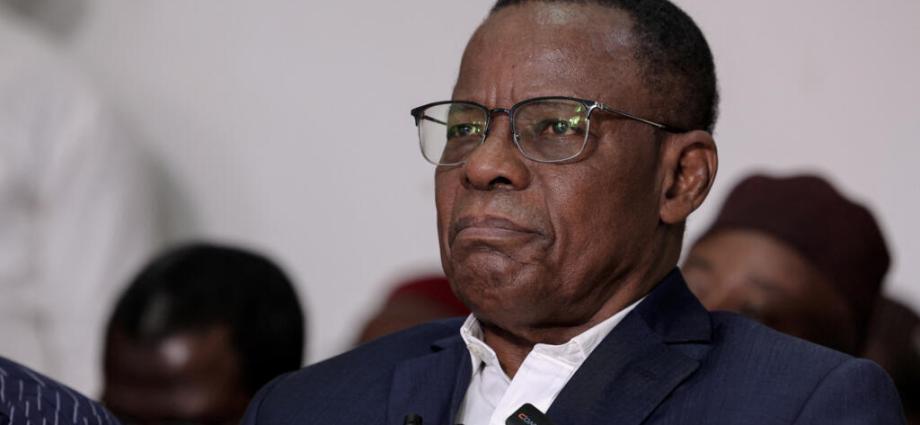“`html
Cameroun: Constitutional Council Bars Opposition Leader Maurice Kamto from Presidential Race

Court Upholds Electoral Body’s Decision, Blocking Kamto’s Challenge Against Biya
In a move that has sparked heated debate across Cameroon, the Constitutional Council has definitively barred opposition leader Maurice Kamto from contesting the upcoming October presidential election. The court’s ruling on Tuesday, August 4th upheld an earlier decision by ELECAM, Cameroon’s electoral commission, effectively ending Kamto’s hopes of challenging 92-year-old President Paul Biya’s bid for an eighth term.
A Repeat of 2018’s Controversial Election
Kamto, who was officially declared runner-up in the disputed 2018 presidential vote, had mobilized significant opposition support in recent months. His exclusion from the ballot marks a dramatic turn in Cameroon’s political landscape, where Biya has ruled since 1982. The court’s decision cited technical grounds for disqualifying Kamto’s candidacy, though his supporters allege political motivations behind the move.
“This is judicial confirmation of what we’ve long known – the system is rigged against genuine political competition,” said Martine Ndiaye, a Yaoundé-based political analyst. “After coming second last time, Kamto represented the most credible challenge to Biya’s continued rule.”
Government Defends Decision as Opposition Cries Foul
Government spokesperson Issa Tchiroma Bakary maintained the ruling simply upheld electoral laws: “The Constitutional Council has spoken. The law has been followed without exception.” However, Kamto’s Movement for the Renaissance of Cameroon (MRC) party immediately denounced the verdict as “a constitutional coup” that undermines democratic principles.
The decision comes amid growing international scrutiny of Cameroon’s human rights record and electoral processes. The European Union recently declined to send election observers, citing “lack of favorable conditions” for credible polls.
What This Means for Cameroon’s Political Future
With Kamto out of the race, analysts predict:
- Reduced international legitimacy for the election outcome
- Potential escalation of political tensions and protests
- Continued dominance of Biya’s ruling party (CPDM)
- Possible radicalization of opposition movements
As Cameroon faces multiple security crises including separatist conflicts in Anglophone regions and Boko Haram insurgencies in the north, this electoral development risks further polarizing the nation. Many young voters, who saw Kamto as representing change, now express disillusionment with the political process.
International Reactions and Next Steps
The African Union has called for calm while urging all parties to respect legal processes. Meanwhile, Kamto’s legal team is exploring international legal options, though with elections scheduled for October 12, time is running short for any potential reversal.
As the dust settles on this latest political earthquake, one question looms large: Can Cameroon’s fragile democracy withstand another controversial election cycle with its most prominent opposition voice silenced?
Source: RFI (Radio France Internationale)
“`


